David Jason interview
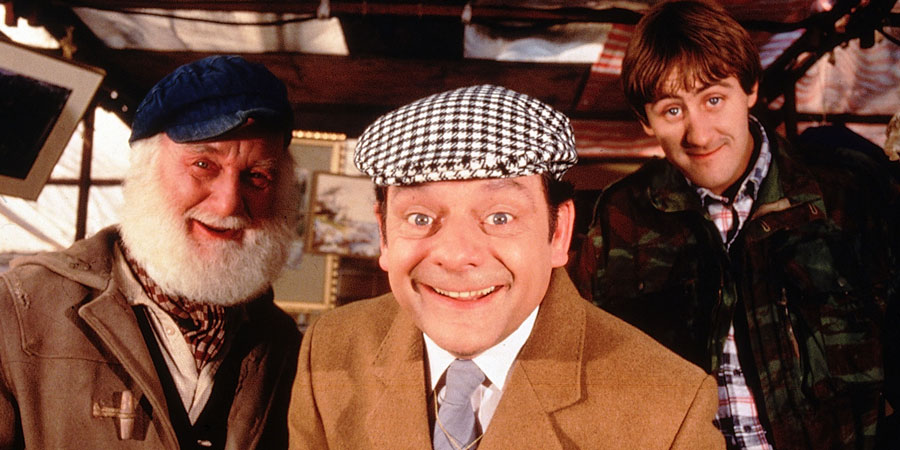
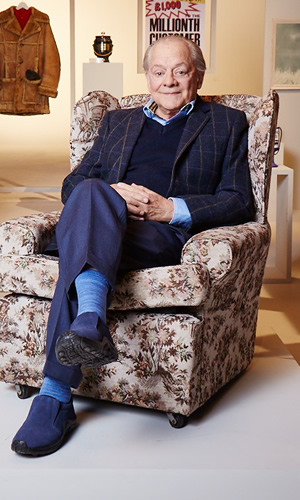
To link in with TV channel Gold counting down the nation's top twenty favourite Only Fools And Horses episodes in 2015, here's David Jason chatting about his character...
Hi David. What did you first think of the character of Del Boy?
There was a tremendous cut and thrust about the character which was implicit in the script.
What it had done was resonated in me something I'd been before. I used to be an electrician and we worked in the East End of London - in some of the pubs, for a builder. That builder was my building blocks for Derek Trotter. What happened was when I was reading it, I could see Derek Hockley in my mind. This is the man! That's how I approached the character.
Is it true the show almost didn't get recommissioned for a second series?
Yes, it's true. [It did in the end,] unlike a lot of shows today [which don't] unfortunately, because they're too frightened to nurse something.
I mean, the title itself was a big minus to start with. Only Fools And Horses? It means nothing! But John [Sullivan] was adamant he would not change the name, because it's a very East and South London name. It's all part of John's London. He dug his heels in and wouldn't let it go, so when people were looking at what they wanted to watch and came across Only Fools And Horses... it didn't get many viewers in the first series, but it then began to pick up.
OFAH also had a satirical edge to it and social comment behind it. It had a real soul. Do you think something like OFAH would be commissioned today?
I think it would, perhaps, but channels are less concerned with their instincts than with instant results. Whereas people in the past with things like OFAH, with longer developing storylines, let things develop. Today you're on sticky wickets because people want instant gratification.
The people who make television also know that people like to jump channels now. The whole face of television has really changed dramatically. Instead of having people who have come up through the business and saying, "this has got legs - it is good, but it needs nursing", we just don't do that anymore. It's all about the figures. It's a different world.
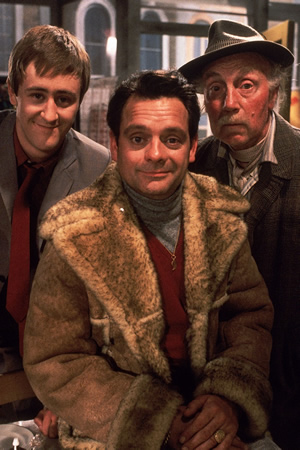
When was the moment when you knew OFAH was enormous?
There was a moment at the very beginning. I must have seen it in the script because it was the first time I'd read a script that had a truth line, unlike a lot of the stuff that was going on at the time, which were sitcoms where they would do anything for a joke to happen. What John did was different.
When we were cast, Nick [Lyndhurst], Lennard [Pearce] and I were all in a room at BBC Television Centre, and they said to us they'd like us to play the parts of Del Boy, Rodney and Granddad. We went to the bar and we were elated to get the jobs, and I said to the pair of them - because I'd had a little bit of experience of sitcoms - that this wasn't a sitcom, I'd call it more a comedy drama. What we've got here is a comedy drama.
From that moment on and the way we approached it, OFAH changed the way sitcoms were viewed. You had a very strong narrative, and the characters were being funny during the journey they were going on.
Is that what lifted it to different levels?
Yes, I think so. Nobody had done it before about families and, of course, everyone has family. You've either got a family, or in a family. One of the things that John put his heart in to was that he knew London, and he knew its people. He knew all about the world he was writing about, and family was desperately important to him.
What were the 80s like for you? OFAH was getting 20million plus per Christmas episode...
It was so exciting. We'd grown up as a little team. One of the great things about the success of OFAH was that it was such a team effort. All of the actors in it knew their roles, and we had a brilliant script and team of actors.
When we reached those dizzy heights, it was fantastic. You're always nervous about how the stuff you're in will be received, so it was very exciting for everyone. One of those Christmas specials got 24million, I think. There was a story reported in the press - might have been just before or after the episode - that the National Grid was always on stand-by to alter the power demands whenever an episode of OFAH was coming because everyone popped out to make a cup of tea! That was a great story. Not only were we the top-rated show but we had to get men in to balance the electricity over the whole country! Rodney would've loved that!
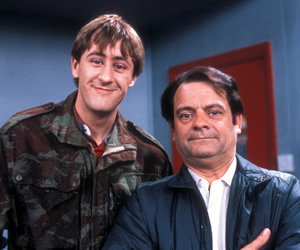
Do you think characters like Del Boy are still out there?
Oh yeah! They're still out there. And they always will be. You can't just put it down to whatever government is in power at any given time, it's human nature. Some are born honest, some are born dishonest. Some are born in between, and I think Del Boy is somewhere in between.
I think if people can make a little bit extra they will. And if they have to bend the rules a little bit, they will. Not break them, just bend them a little. There always will be, and there always has been, people out there. And there's the craic and the fun of it.
You've got me going now! I saw Alan Sugar the other night and he said something like, "What do you think I am, some sort of Del Boy?" - Del Boy isn't a crook. He's a man going after that chance, with a kind heart. There are things about the character people forget. He's loves his family. He's like most of us.
Do you have a favourite Del Boy moment?
I suppose there's one very famous one, and there's a very good reason for that. It's the famous 'falling through the hatch in the bar' moment.
The reason is because I had been doing comedy and farces on stage for years. Falling behind a settee, pretending to miss it... When that scene came up I said that I would fall through the hatch. He [Sullivan] told me that that wasn't what he saw, but I convinced him. The reason I insisted was because I'd done it so many times. I knew it worked. All that stuff I had learned on stage with an audience... I knew exactly how it was going to work.
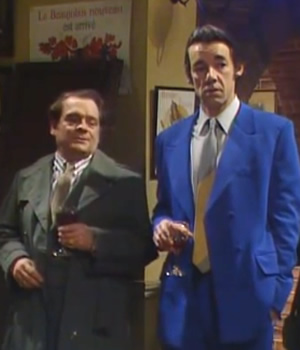
I didn't know it was going to work that well! It was all down to timing. What I tell people when I talk about that scene is that Del Boy reaches a point - 45 degrees - where he never looks where he's going. A normal person's instinct would be to look down and break their fall. I had to fight against that instinct. You have to know exactly where you are and exactly where the floor is. The whole thing becomes quite a technical exercise. That's why I'll always remember that scene - it has such a lot of things going in something that looks so simple.
People still ask you about reunions all the time, but where are you with any potential get-together in the future?
That's very, very difficult. I didn't think it was until we did the Children In Need special with David Beckham. That worked very, very well.
John's lad had written in Trigger for that little episode and right up until the last day of when we were going to record it, Trigger was in it. We obviously had to write Roger [Lloyd Pack] out because he was too ill, even though he really wanted to do it. One of the team was missing, sadly.
I had a meeting with John Sullivan not long before he died, and he asked me if I'd be interesting in doing some more. He said that he thought doing something around Del Boy's 60th birthday would work, and he working on something where all the team would come back together to celebrate. How that would have all come about I'm not sure, but he asked me if I was up for it in principle. At that time I said yes, because John Sullivan was writing. But we haven't got John Sullivan now - it's a very difficult question to answer. He was the genius; he was the writer.

